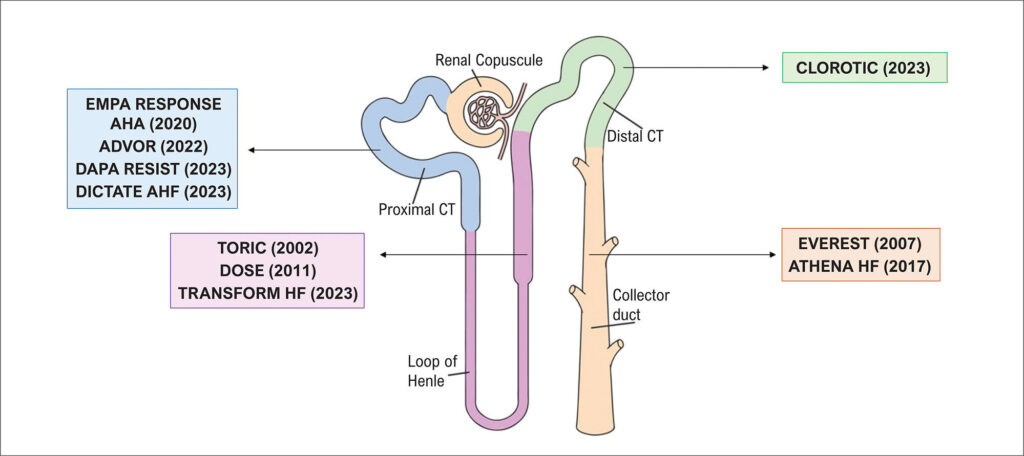ABC Heart Fail Cardiomyop 2023; 3(2): e20230083
Treating Diuretic Resistance in Light of New Evidence
Abstract
Nearly 80% of all patients hospitalized for decompensated heart failure (HF) present hypervolemia with signs and symptoms of congestion,, for which decongestion is an essential pillar of treatment. Most guidelines recommend the use of loop diuretics as soon as the patient is admitted.– Despite this, a post-hoc analysis of the DOSE-AHF and CARRESS-HF studies showed that only half of these patients were free of congestion at the moment of high discharge, this being the group with the highest mortality and readmission rates within 60 days.
For the management of congestion, for a long time only the use of loop diuretics was recommended, with little focus placed on the benefits of using additional strategies. Part of the difficulty in achieving euvolemia is due to diuretic resistance. In recent years, however, new drugs have been tested and have proven to be interesting options for treating hypervolemia, especially in patients with refractory congestion and diuretic resistance. This review aims to summarize the strategies studied, the mechanisms involved in diuretic resistance, and the clinical characteristics of these patients, with the aim of assisting in the most appropriate choice of approach to congestion.
2,492


